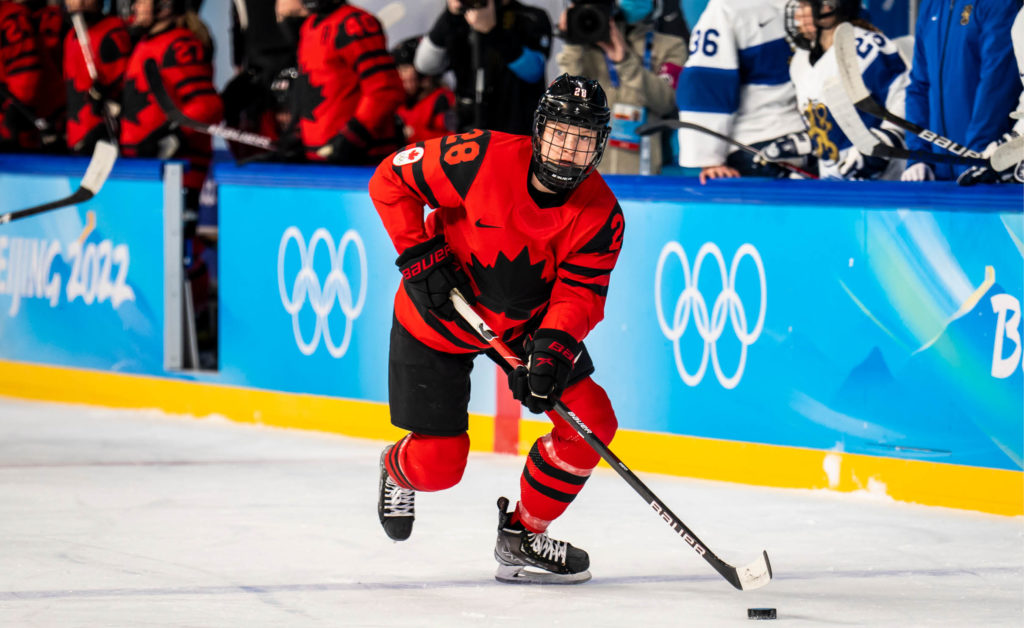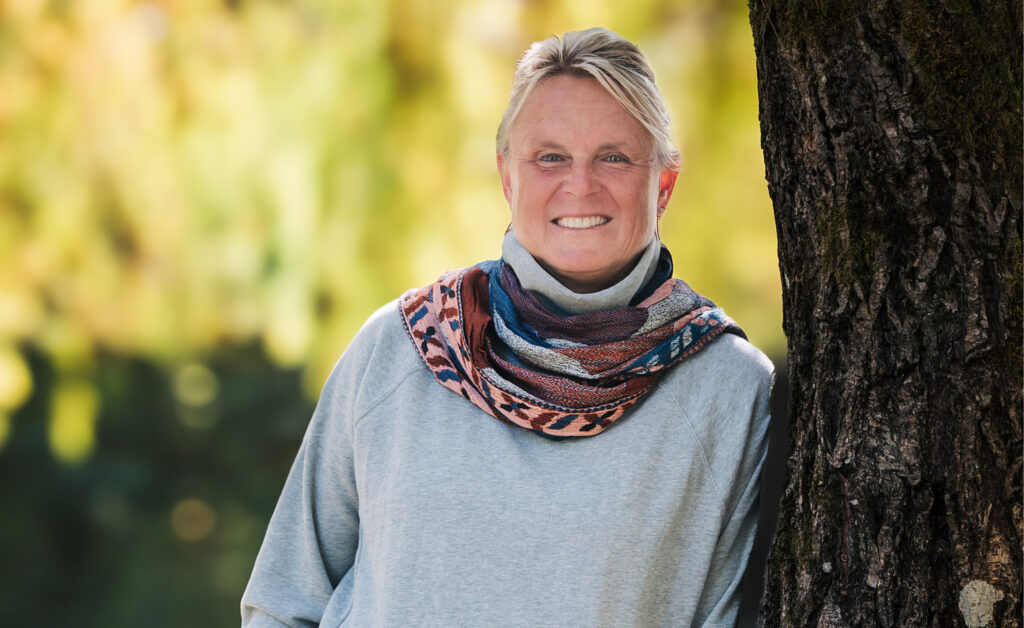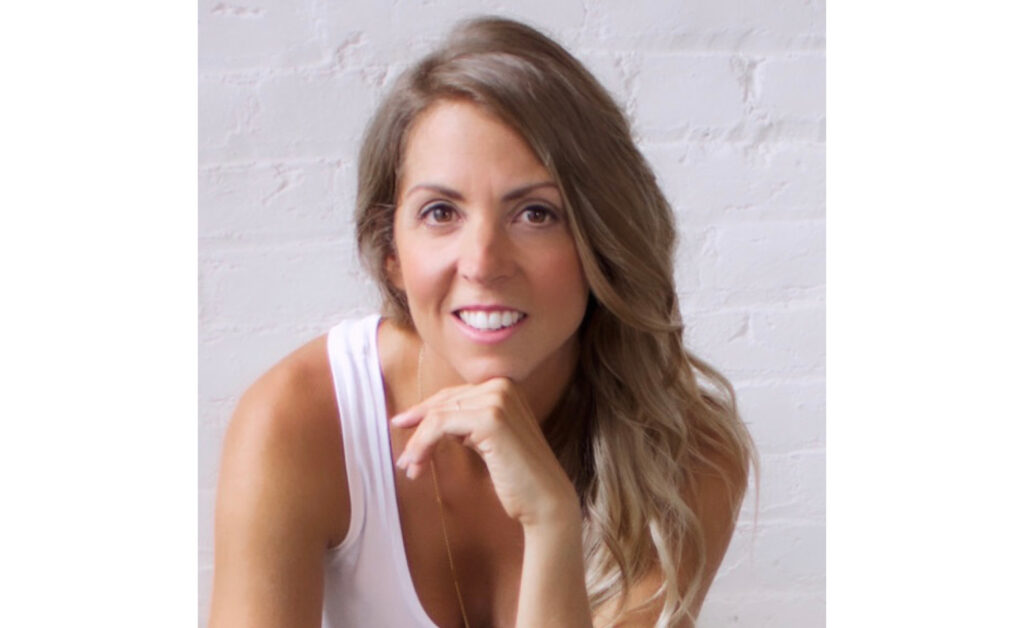What do you get when you cross a self-driven, passionate, go-getter with a Saanich Peninsula community full of non-stop support? You might just get an Olympic Gold Medal Athlete!
What an inspiration to spend time with Micah Zandee-Hart: she is a bright light, not only in the world of sports but as a champion for positive leadership, mentoring and paying it forward.
While some people get motivated when other people say “You can’t do that,” Micah had the opposite experience. When she set her sights on playing Olympic level hockey, she received nothing but support and encouragement from her family and community and she set out to “prove people right!” While she didn’t know how she was going to do it, her belief that she was going to do it never wavered.
On the ice at age four, she happily played on the boys’ teams throughout her childhood when there were no girls’ hockey teams. Using her super-competitiveness as a super-power, Micah attended the Okanagan Hockey School at age 16 and grew both personally and professionally.
We saw our Team Canada athletes on TV, glowing with pride, clutching their medals, celebrating with their teammates – but we didn’t see the years, decades in fact, of hard work, grit and determination that they put in. We don’t see all the things they have missed because of practices, training and games. We don’t see the struggle to regain their strength injury after injury and the mental toughness they endure with losses, setbacks and disappointments.
Micah is B.C.’s first player to represent Canada in Women’s Hockey at the Olympics and is an accomplished academic and Cornell graduate. She chose that University because the coach committed to helping her achieve her Olympic dream and when she was told: “You will work harder here than you ever worked before,” she was all in.
You said there are so many universal life lessons that you have learned playing hockey, defence specifically, and being a part of a team that you’ve called a family. Would you share some with us?
There are three big things that I always come back to when I think of what my hockey career has instilled in me: determination, leadership and belief. Determination was something I relied upon heavily, being the only girl from Vancouver Island pursing a career in women’s hockey at the time. My determination led me to put in extra work; to seek out coaches and mentors that would tell me what I needed to hear, not what I wanted to hear; and to take any opportunity that came my way to help me get better. Leadership was a big one I learned at a young age. The power of the team is the people, but some people in that group have to be willing to put the collective ahead of the self for the betterment of the team. That can be as simple as leading by example or getting to know your team members. Belief is one I think it took me a little bit longer to learn, but I truly think that 90% of being successful in whatever you pursue in your life is the belief in yourself that you can accomplish the things you put your mind to. You could be the best hockey player in the world, but if you don’t believe it you may never be a champion.
You’ve had some powerful role models and mentors in your life, including Colleen Sostorics, who made your future look a little clearer for you – talk about the women who inspire(d) you and how you stay inspired when things are tough.
Colleen was an obvious one for me as a young girl. I met her when I was 10 years old, and she was living proof that a young girl from a small community could make her dream a reality if she put her mind to it. I carried that with me throughout my career. But more influentially perhaps were the women in my life outside of hockey. My mother, my sister, my aunts, my grandma; they were all strong examples of leaders who lived their life treating everyone with respect, volunteering in their community, cracking jokes whenever they had the chance, and most of all giving love to those around them. They taught me so much about how I wanted to be remembered, just by being themselves unapologetically.
What do you want parents/guardians/supporters to know when championing a kid in sport? What do you see that we are doing right or where do you see that we can use some improvement?
Honestly, first and foremost as cliché as it may sound, the best thing any supporter can do for their child in sport is to be their cheerleader unconditionally. What worries me about the way youth sports are headed is the large focus on outcome. With the internet, analytics and technology right now, children are being exposed to scholarships, ranking systems and depth charts at earlier and earlier ages. As someone who was extremely competitive in literally everything I did from age four, I am not saying that should be taken away. Children need to experience celebrating success and learning from failure; that is an important part of life. But we need to celebrate things outside of points and wins. We need to celebrate the kid who put 100% effort in at practice, the kid who bounced back after a mistake, the kid who stayed out to pick up pucks so their coach didn’t have to, or the kid who lifted up a teammate when they were down. These are the things in sport that go far beyond trophies in a box in your basement, and as someone who has played hockey at the highest level, I can assure you that these things can be the difference between someone “making it” or not.
Not all players saw the ice during your time in Beijing, yet your team seemed to find the secret sauce that allowed everyone to feel valued and appreciated for their respective roles. Tell us about this and how it can relate to real life.
Unfortunately, the reality of hockey is that only five people can be on the ice at one time, and sometimes with momentum swings and tight situations like a gold medal game, that leads to some players seeing the ice much more than others. As I said previously, every player on a roster has a role, just as everyone at a company has a role from the CEO to the cleaning staff who come in after everyone leaves. But what makes a team great is the understanding that each of these moving parts as they are make the collective better. That was a focus of our team from day one: when we won in Beijing, despite there only being 23 medals awarded, there were 50 people who had a hand in making us our best in that game. We celebrated and showed gratitude for what all 50 of those people brought to the table, and I think that is the “secret sauce” to making any team successful.
Micah, at just 25, you’ve already seen the world, accomplished a huge, life-changing goal and have set yourself up to continue to positively influence females in sport. Tell us about Micah in down-time mode and Micah in planning mode for the future.
I’ve learned that the million-dollar question to any Olympian post-Olympics is “what’s next?” Down time for me is not too exciting. I play hard but I also rest very hard … I love going to the movies, reading, writing, watching Netflix, playing board games, or taking up other sports just for fun. In terms of planning for the future, I want to continue playing for as long as my body allows me and as long as I still love what I am doing. Aside from that, I have a passion for coaching and mentoring the next generation of athletes. I am also interested in performance psychology and writing, so I’d like to pursue a Master’s and potentially look at publishing a book or two down the road.
If you could only tell our readers one thing, what would it be?
I think going along with the other questions in this article, I’d be remiss not to mention a realization I came to over this past year. In 2021 prior to the Olympics, I broke my thumb and dislocated my shoulder, ultimately resulting in surgery, and only returned to my team in November before competing at the Olympics in February. Three years before that I was a final cut from the team that won silver in PyeongChang in 2018. A lot of people have asked me since then if getting the gold medal around my neck was the best moment of my life. Sometimes I’m embarrassed of my answer, but the truth is that getting that medal was not the best moment of my life. The best moment of my life was finding the balance between striving for gold, loving what I’m doing, and being my authentic self on and off the ice. Somehow on the journey for gold that became my new definition of success, and finding that with my incredible teammates of this year’s team specifically, led to some of the best moments in my life. I hope readers remember that in the pursuit of their own dream journey.




